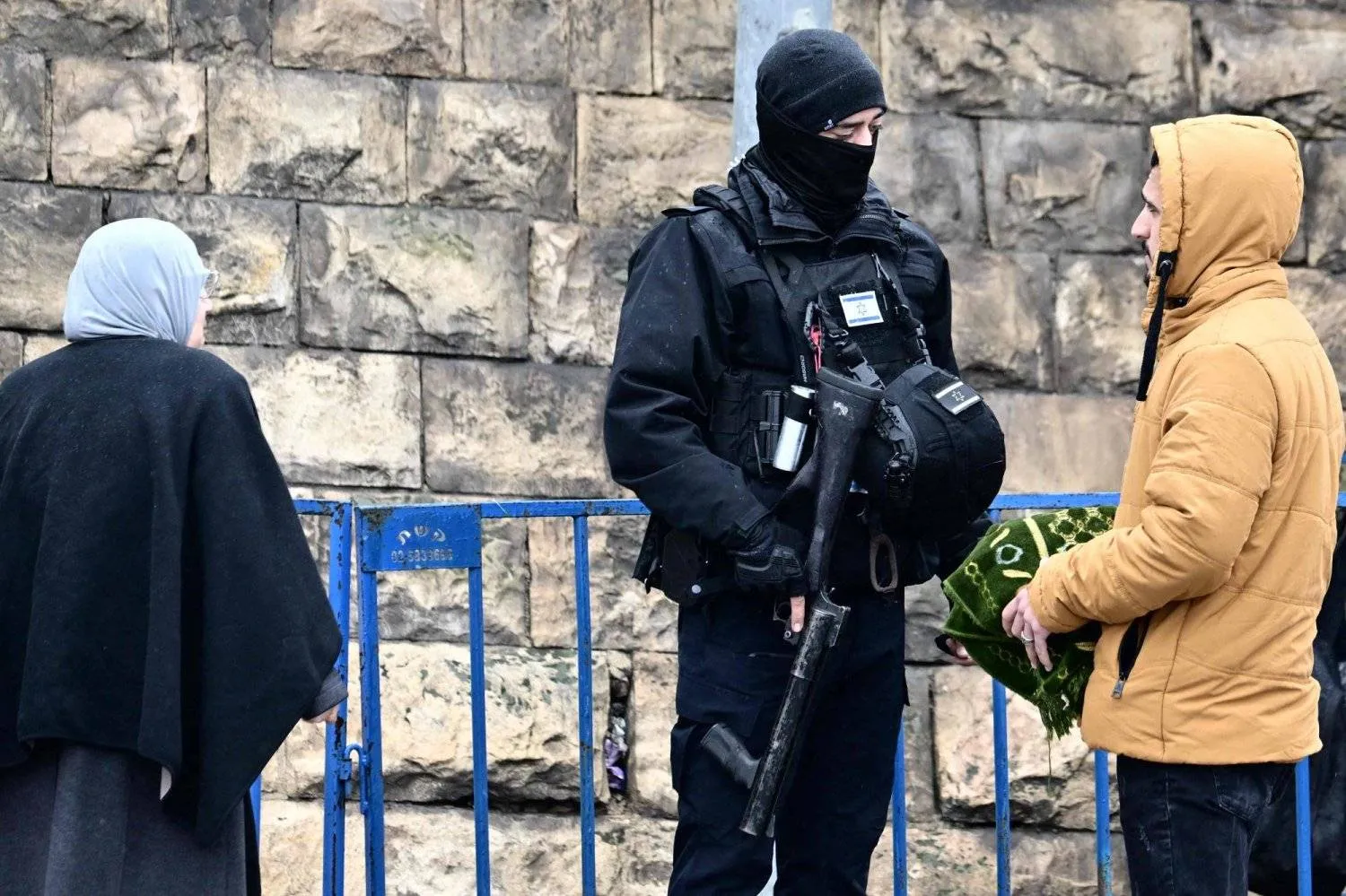Israel maintained its repressive practices in the West Bank banning worshippers from reaching al-Aqsa Mosque for the 14th consecutive week, especially on Fridays.
Israel deployed massive police forces and established military barriers, provoking and suppressing visitors and threatening and forcing them to return.
On Friday, the al-Aqsa Mosque was almost empty of worshipers, and the Old City was empty of visitors.
The Israeli forces prevented thousands of worshipers and only allowed a small number of elderly people and women to enter the Mosque.
According to the Islamic Endowments Department, the number of worshipers on Friday was at most 12,000, which is only a quarter of the usual number on regular days.
The worshipers performed prayers in the streets of Jerusalem despite the persecution, oppression, and rainy weather.
In the Wadi al-Jouz neighborhood, Israeli forces attacked a group of worshipers with gas bombs while they were praying. Also, the 1948 Palestinians, who are considered Israeli citizens, were denied entry to al-Aqsa.
Cities and villages in the West Bank witnessed a series of major attacks and Israel continued to destroy the infrastructure in refugee camps.
On Friday, Israeli forces attacked Nourshams camp adjacent to Tulkarm, destroying the infrastructure.
The head of the emergency department in Tulkarm, Hakim Abu Safiya, said that the camp was under a broader attack than the recent attacks, causing severe destruction to infrastructure.
Camp residents said the occupation bulldozers closed many street entrances and closed their alleys with dirt berms and asphalt, preventing them from leaving their homes.
Meanwhile, on Friday afternoon, the army stormed the town of Arraba, southwest of Jenin, and arrested freed prisoner Issam Nawaf Lahlouh, 62, before abducting him, in addition to invading the homes of his two sons.
Security and local sources reported that the occupation forces arrested another freed prisoner, Ali Jamal Abu Salah, 29, at the Shafi Shamron roadblock near Nablus while he was traveling back to his home.
On Friday morning, Israeli forces also stormed several areas in Nablus.
Security sources reported to WAFA news agency that Israeli forces stormed the old and new Askar camps and searched several homes, but no arrests were reported.
They also stormed Azmut village and Beit Furik town, east of Nablus. Confrontations erupted, but no injuries were reported.
Israeli forces also stormed and raided a house in Sinjil, north of Ramallah.
The mayor of Sinjil, Moataz Tawafsheh, reported that the occupation soldiers raided the home of Hussam Awashra, an expat in the US, smashed and removed the doors, and turned it into a military barracks.
Tawafsheh pointed out that this is the second time that Awashra’s house has been raided within five days.
Israel Blocks Worshipers from Reaching Al-Aqsa Mosque for 14th Consecutive Week

An Israeli policeman stops worshipers in Jerusalem on Friday (AFP)

Israel Blocks Worshipers from Reaching Al-Aqsa Mosque for 14th Consecutive Week

An Israeli policeman stops worshipers in Jerusalem on Friday (AFP)
لم تشترك بعد
انشئ حساباً خاصاً بك لتحصل على أخبار مخصصة لك ولتتمتع بخاصية حفظ المقالات وتتلقى نشراتنا البريدية المتنوعة







